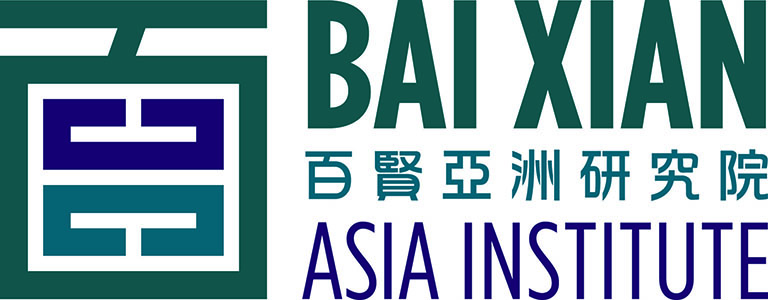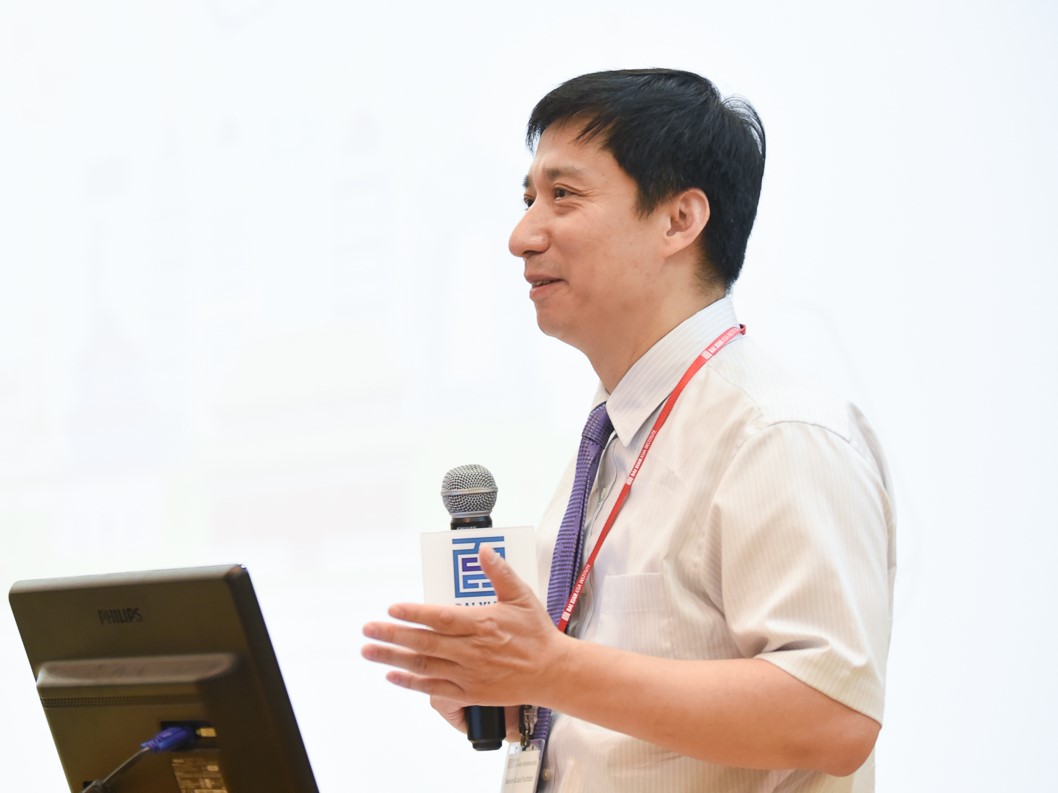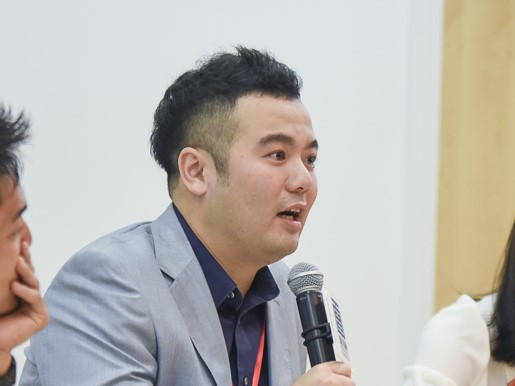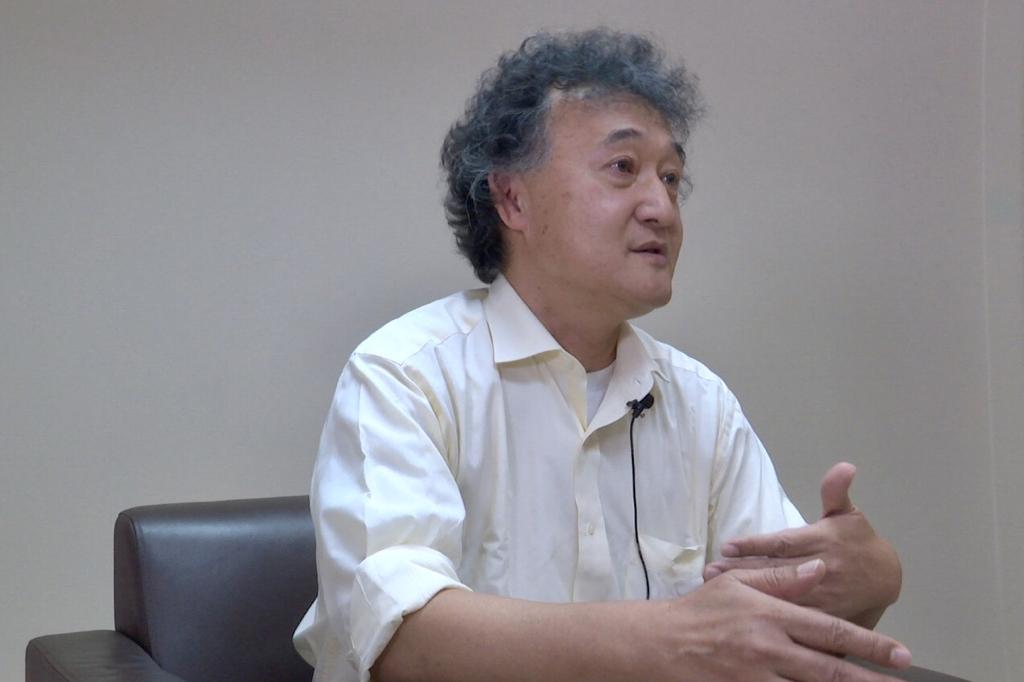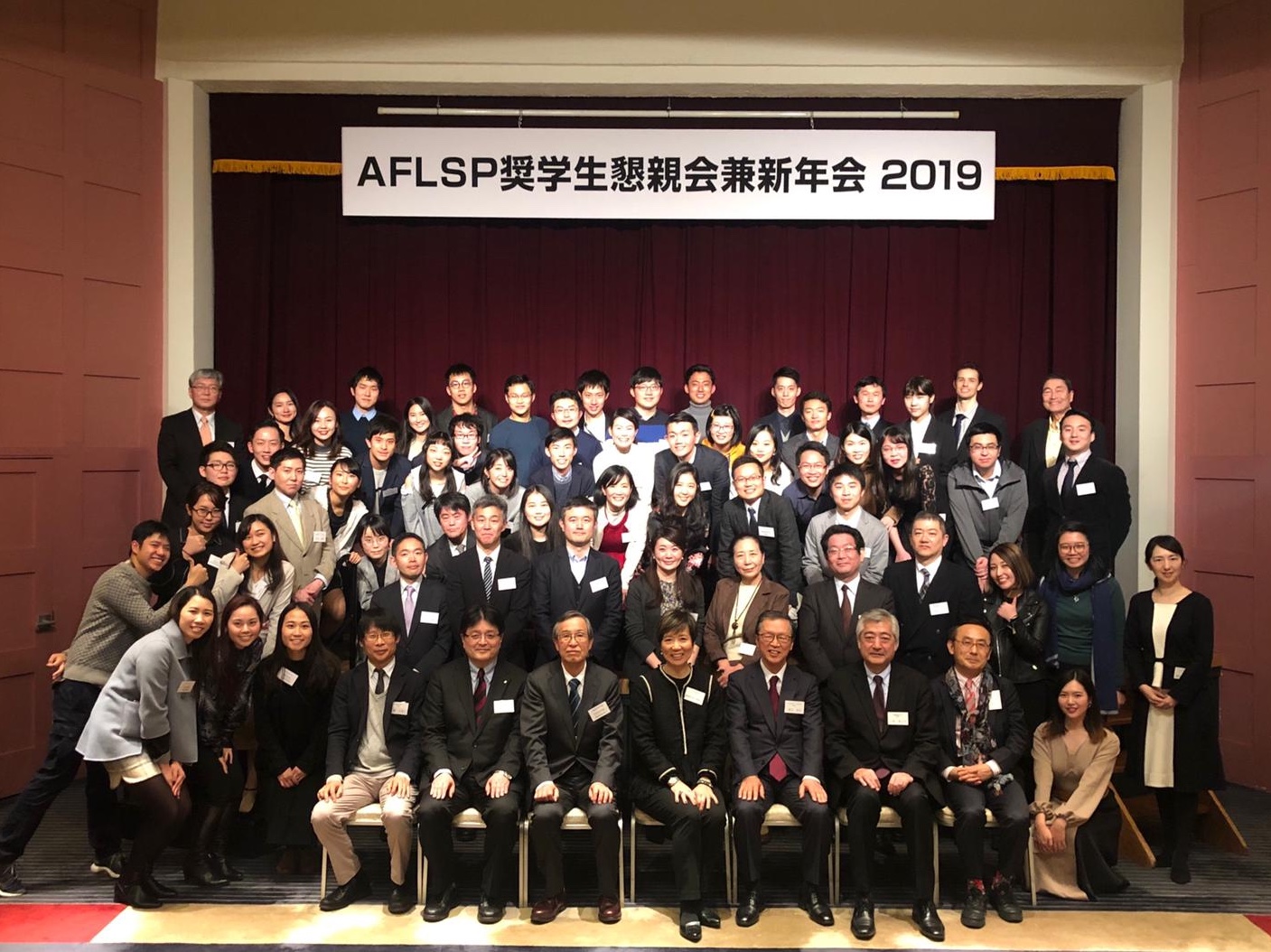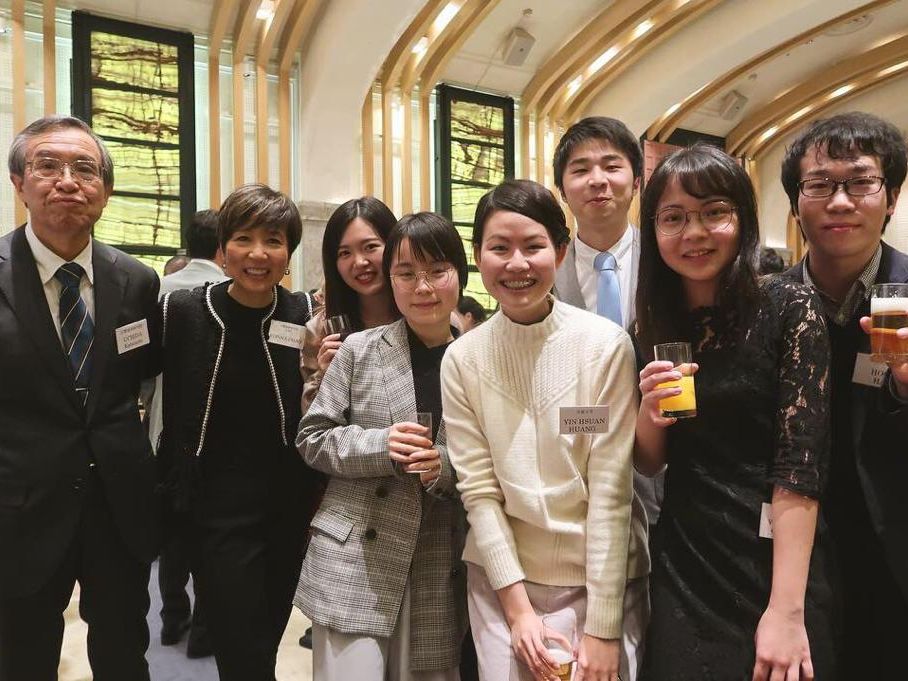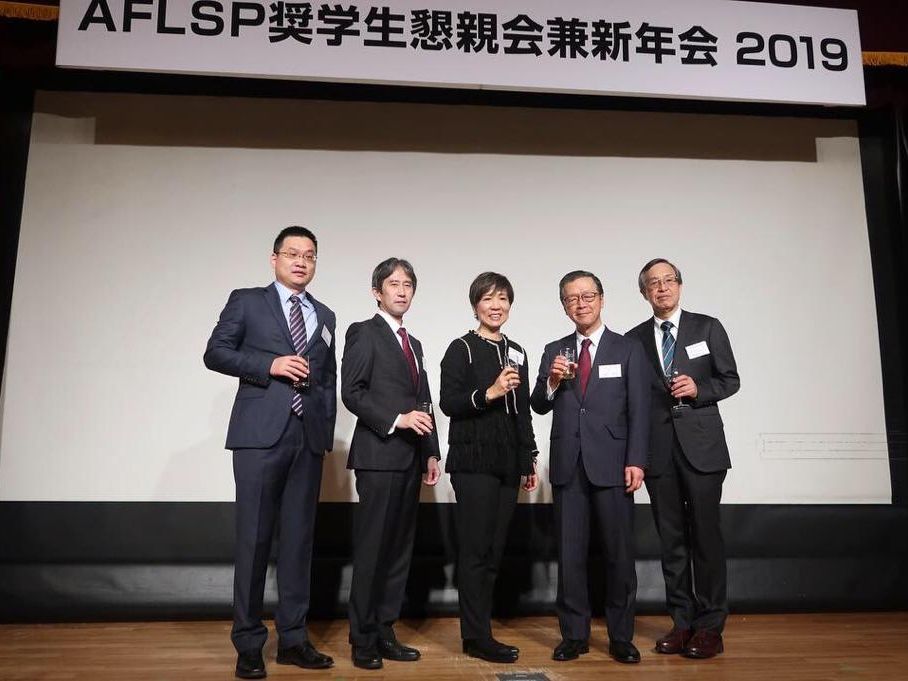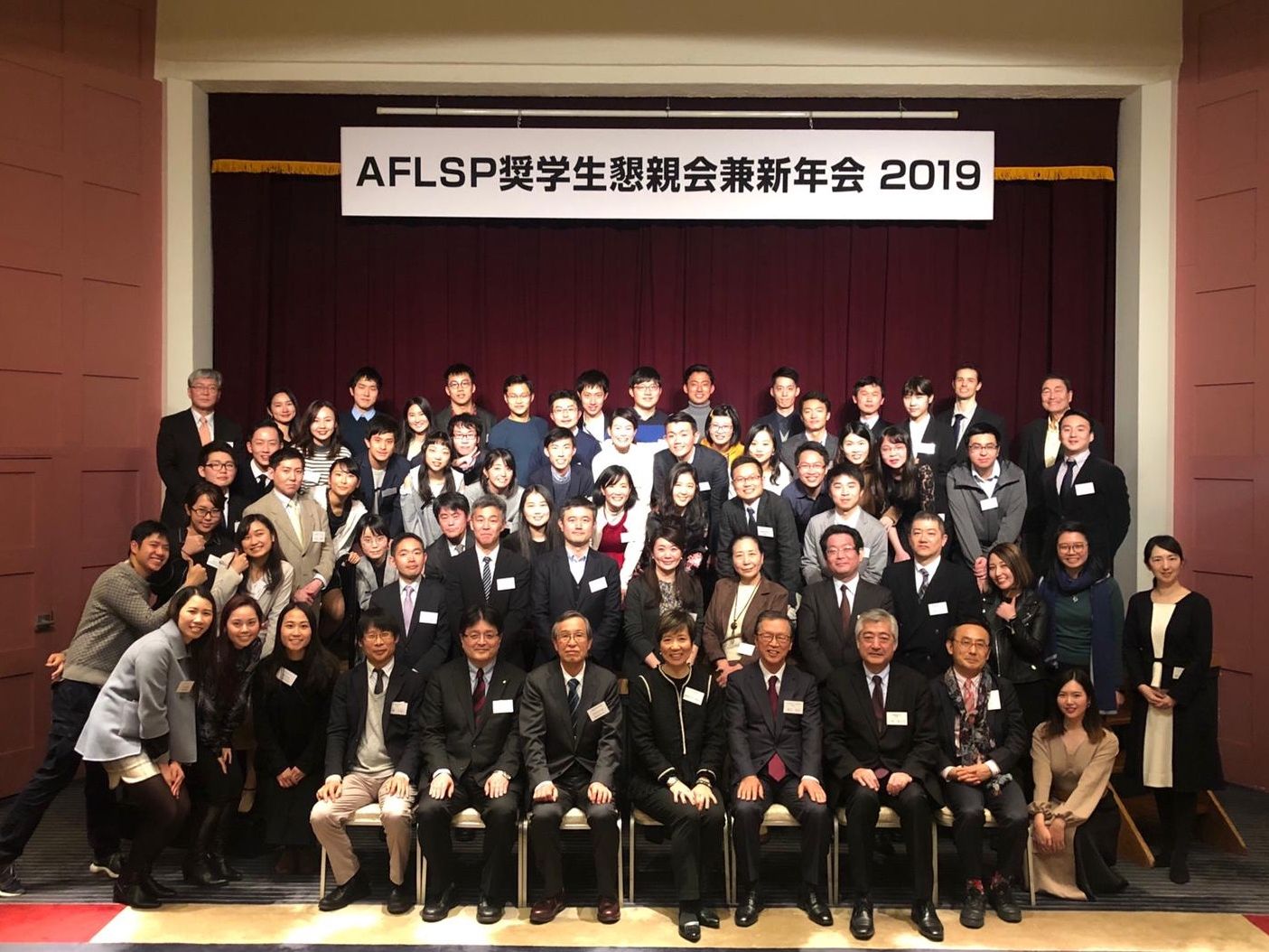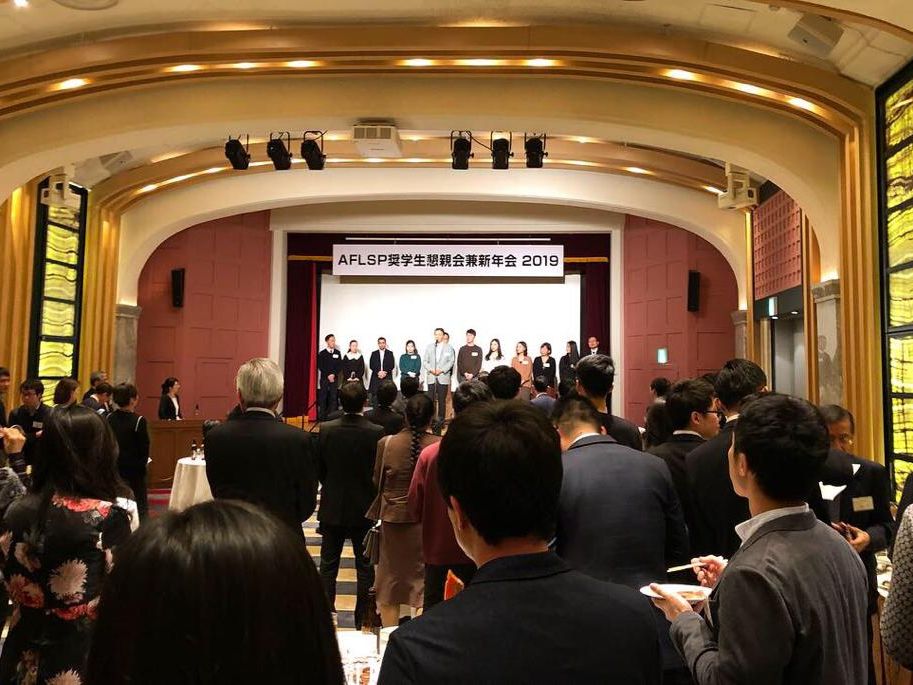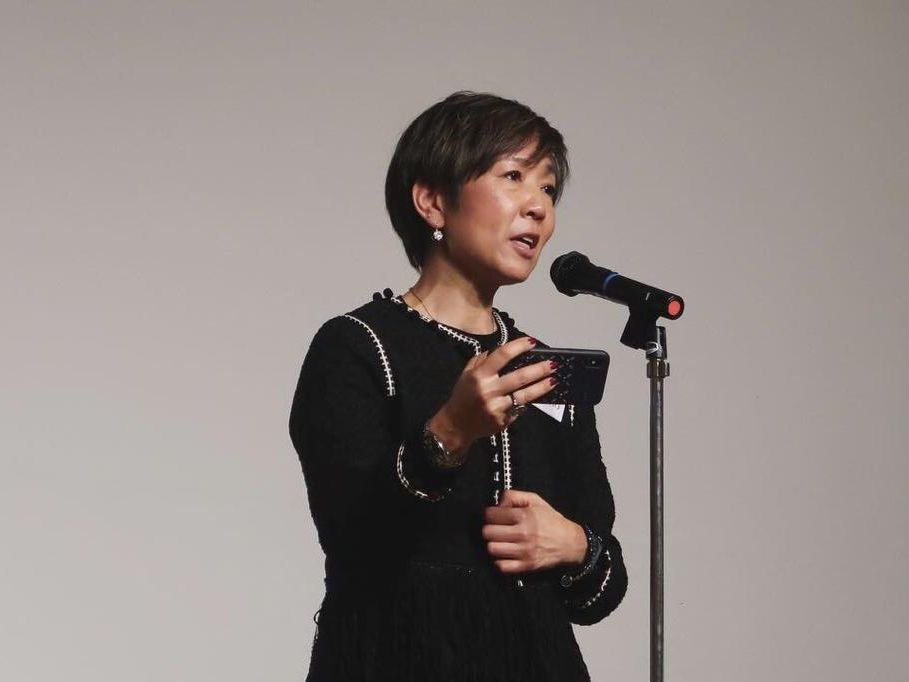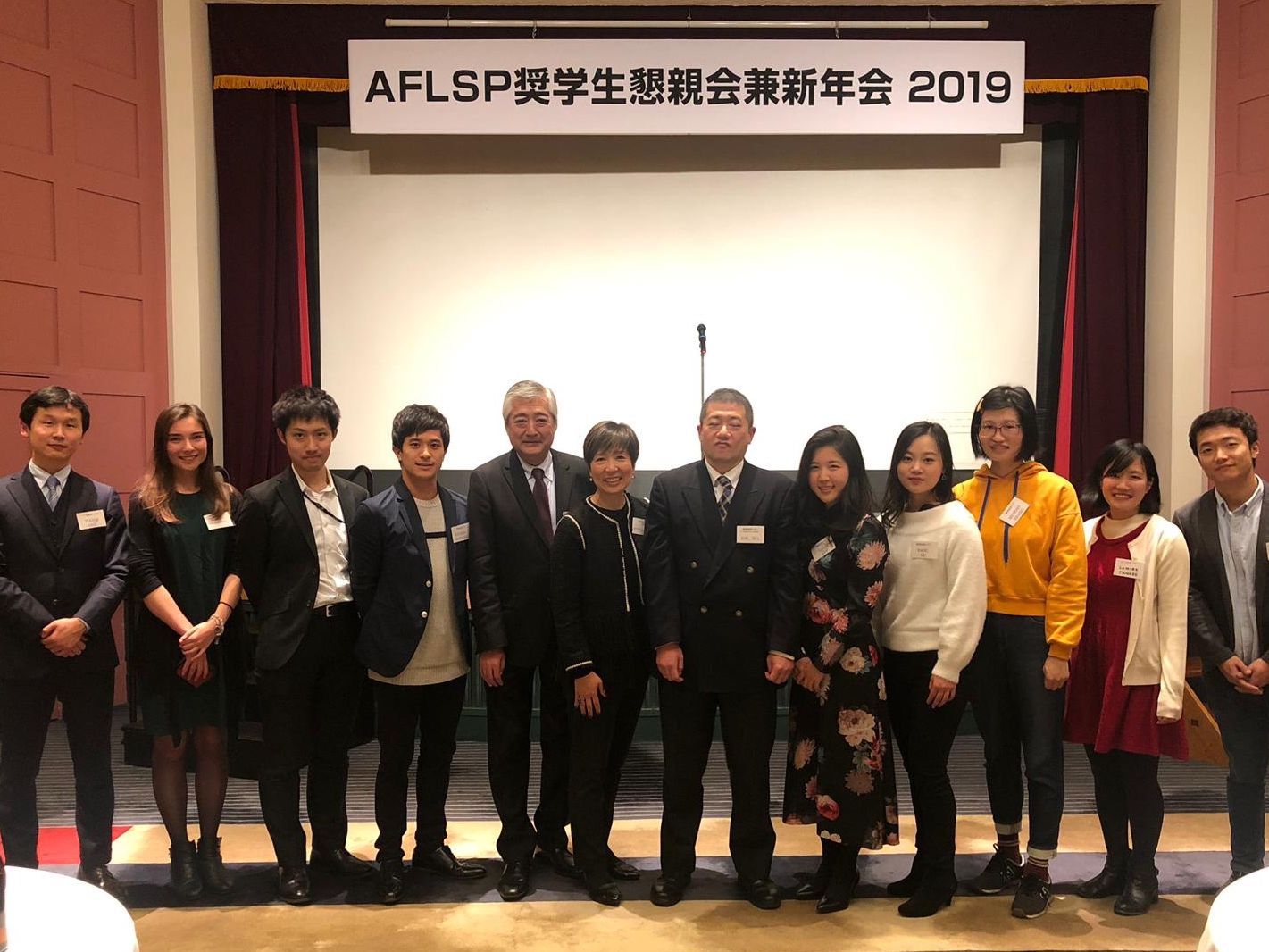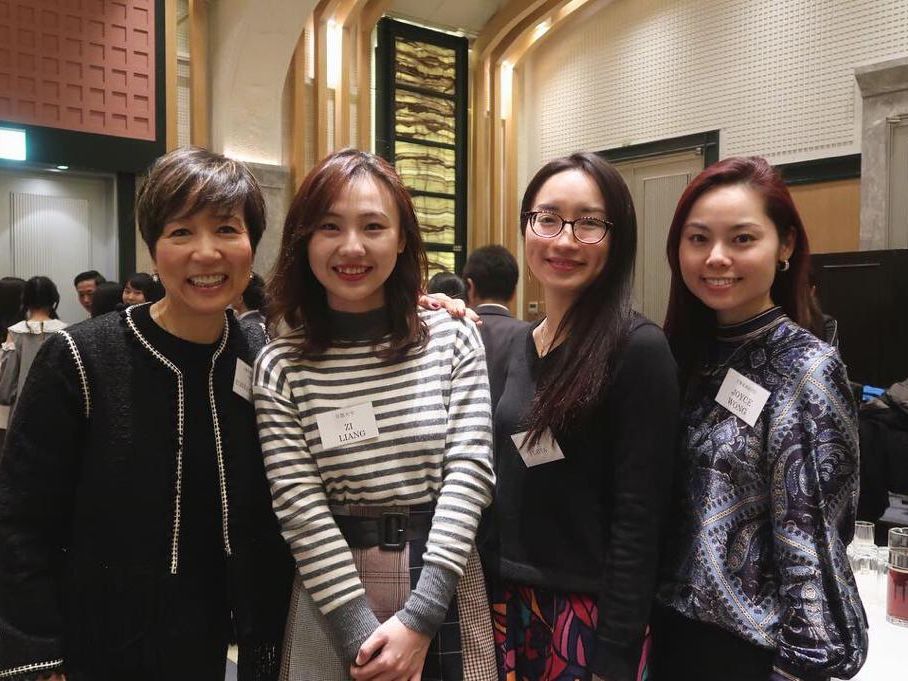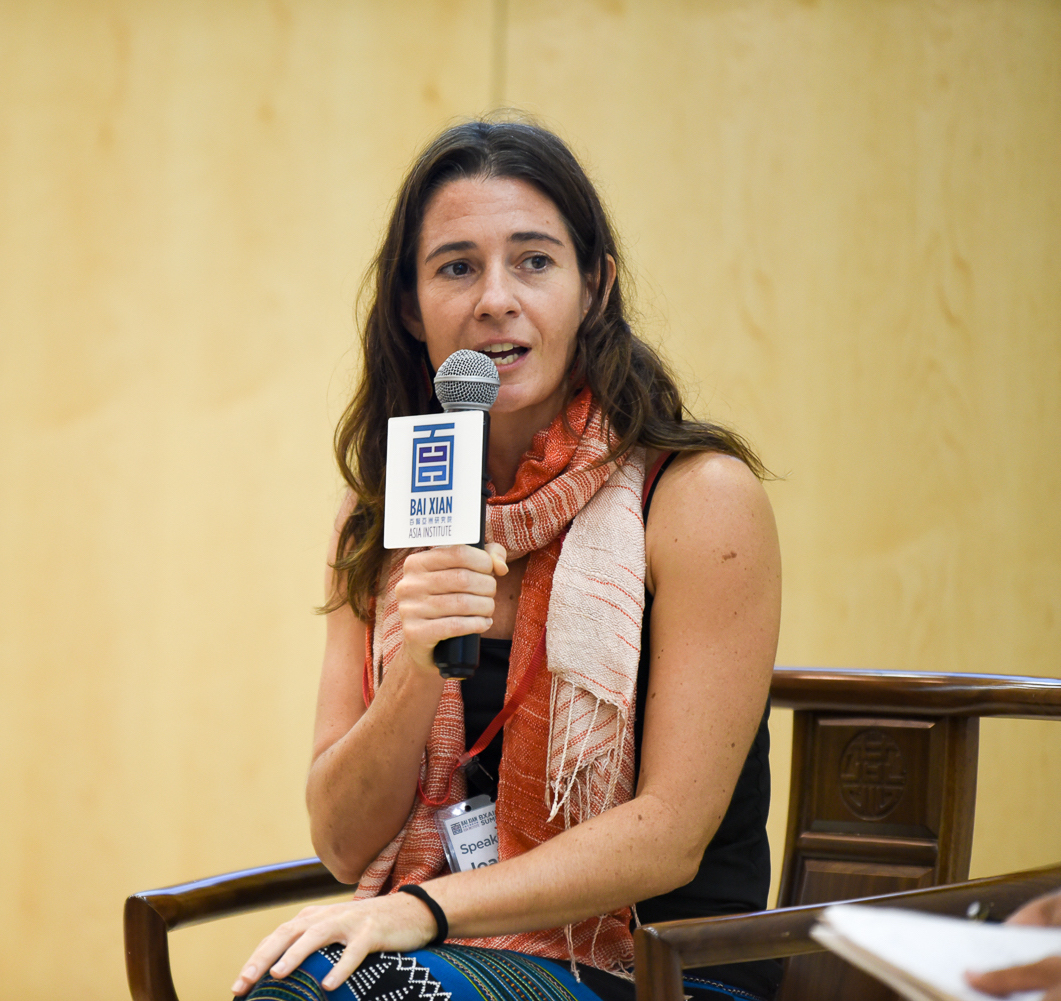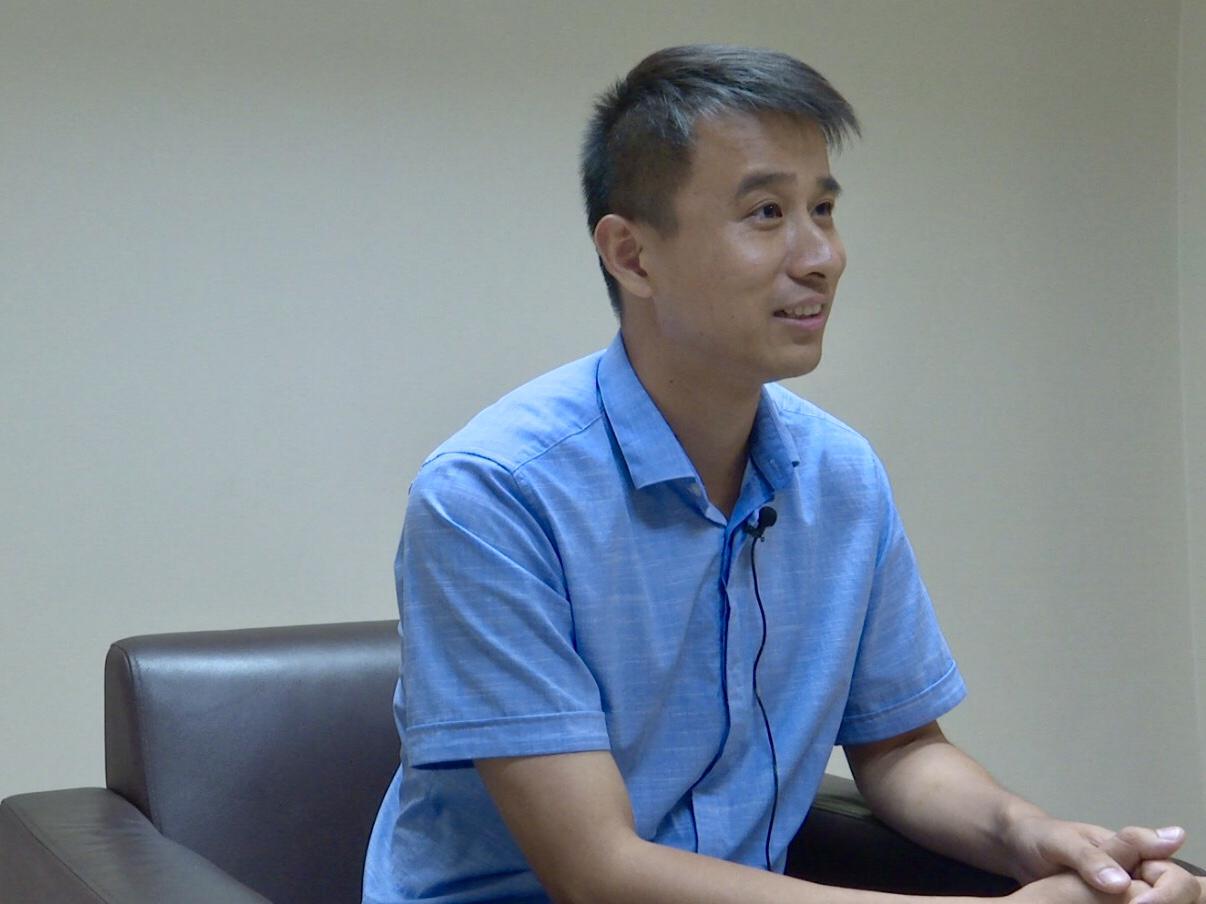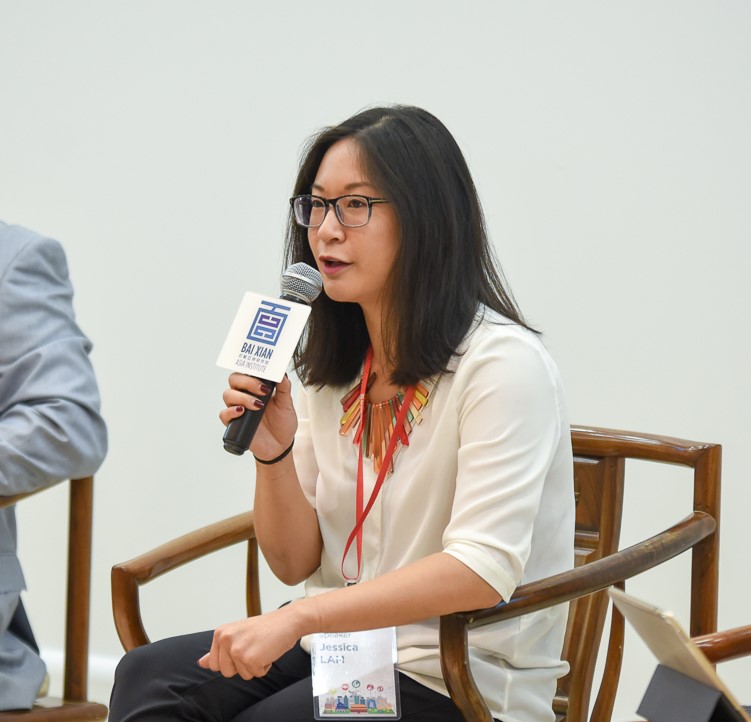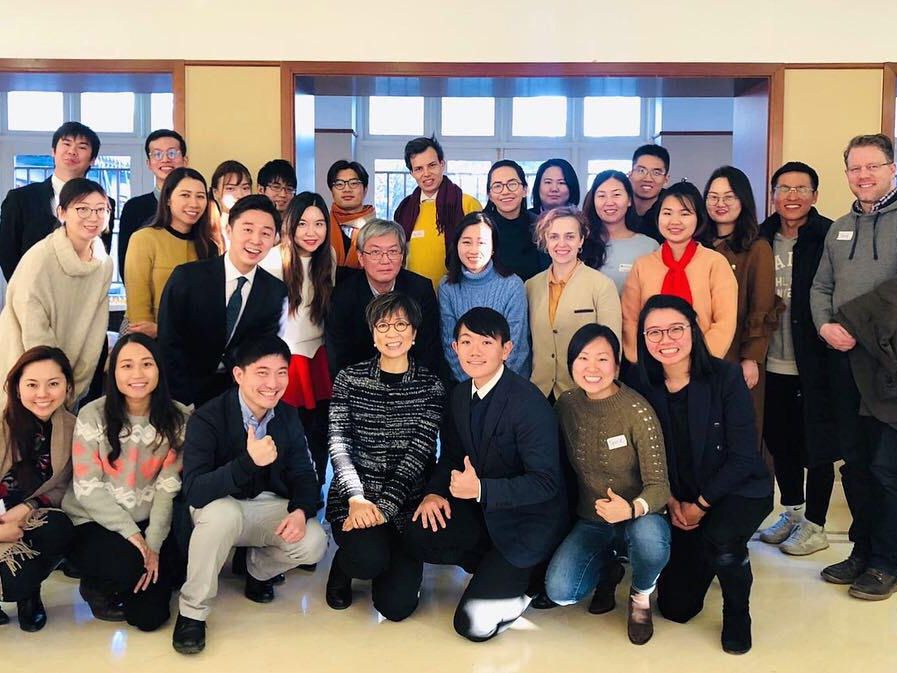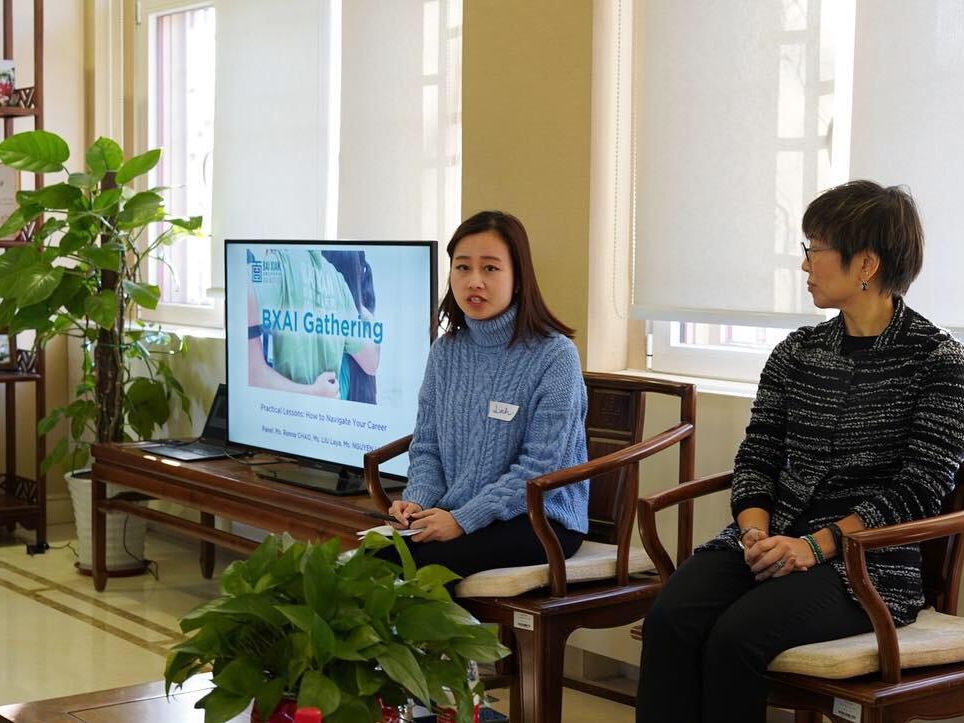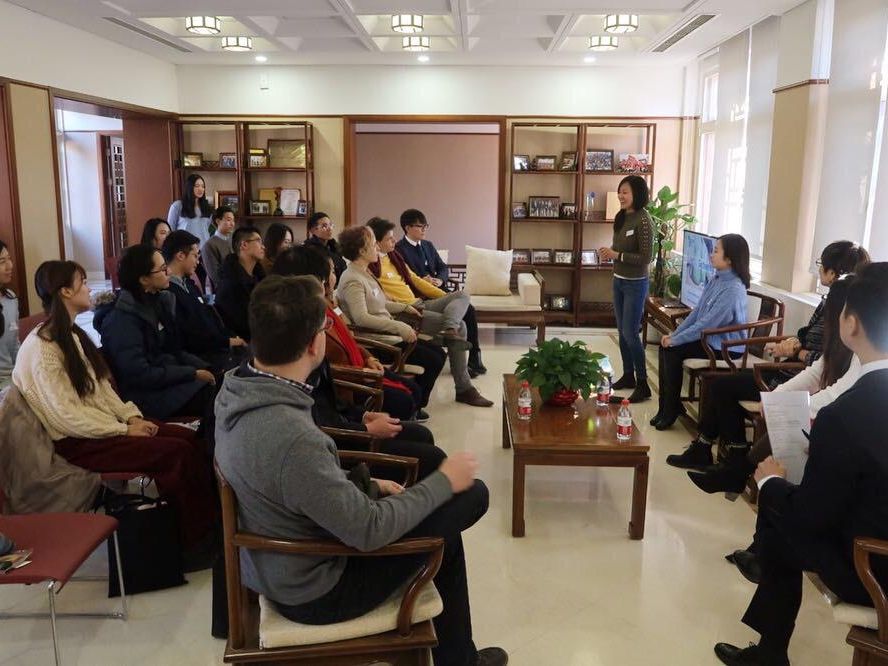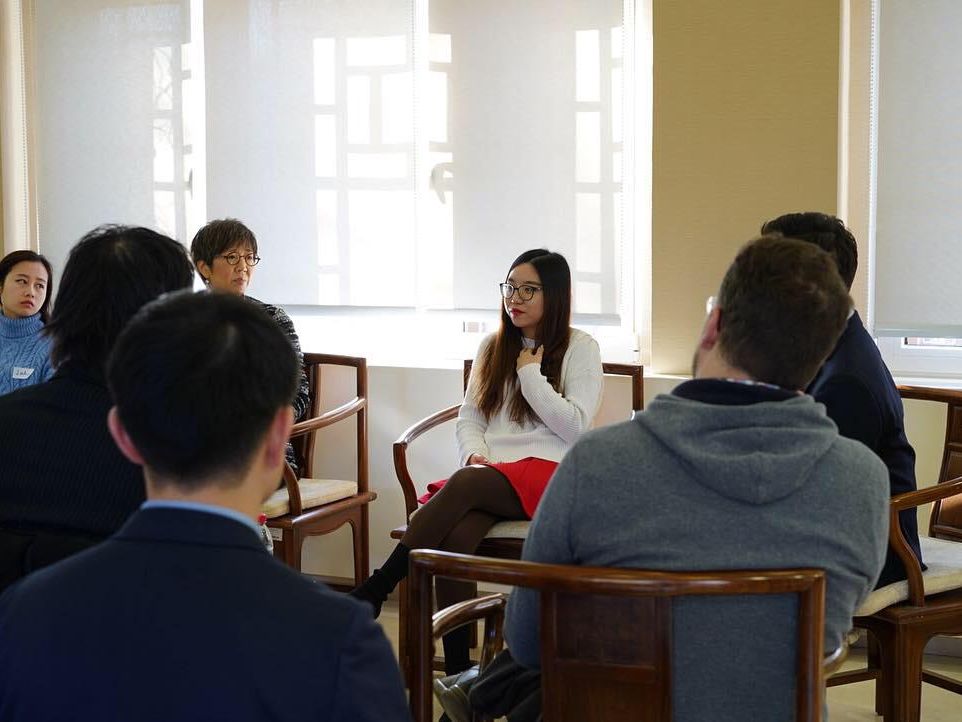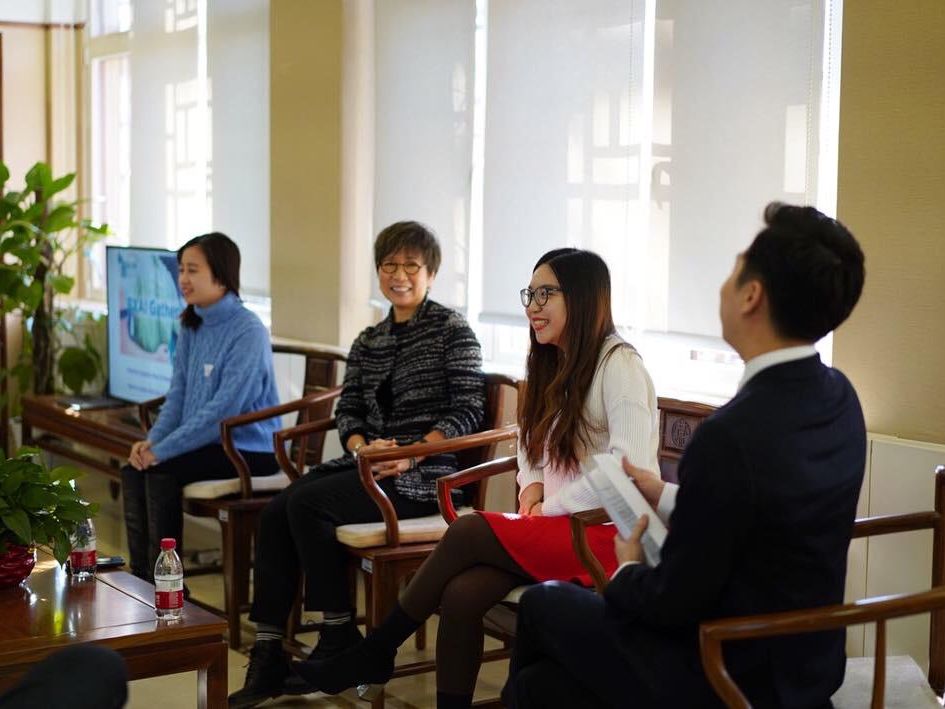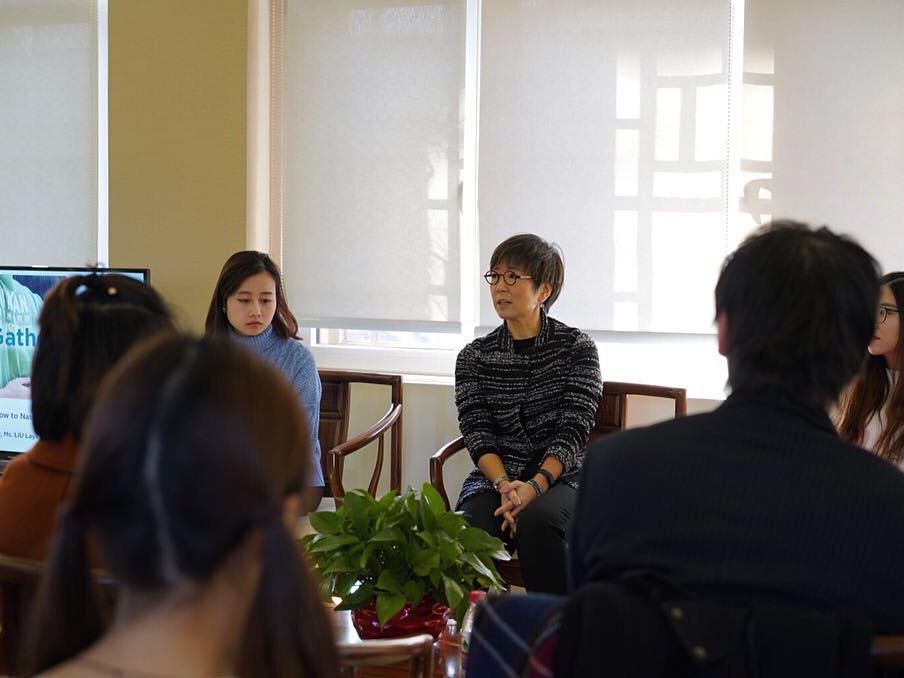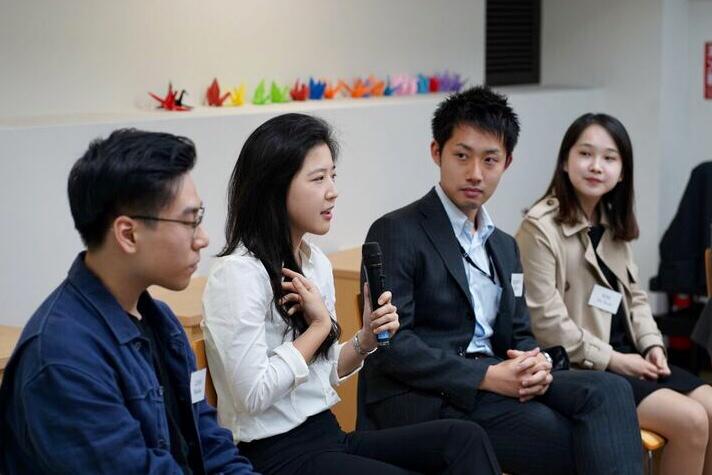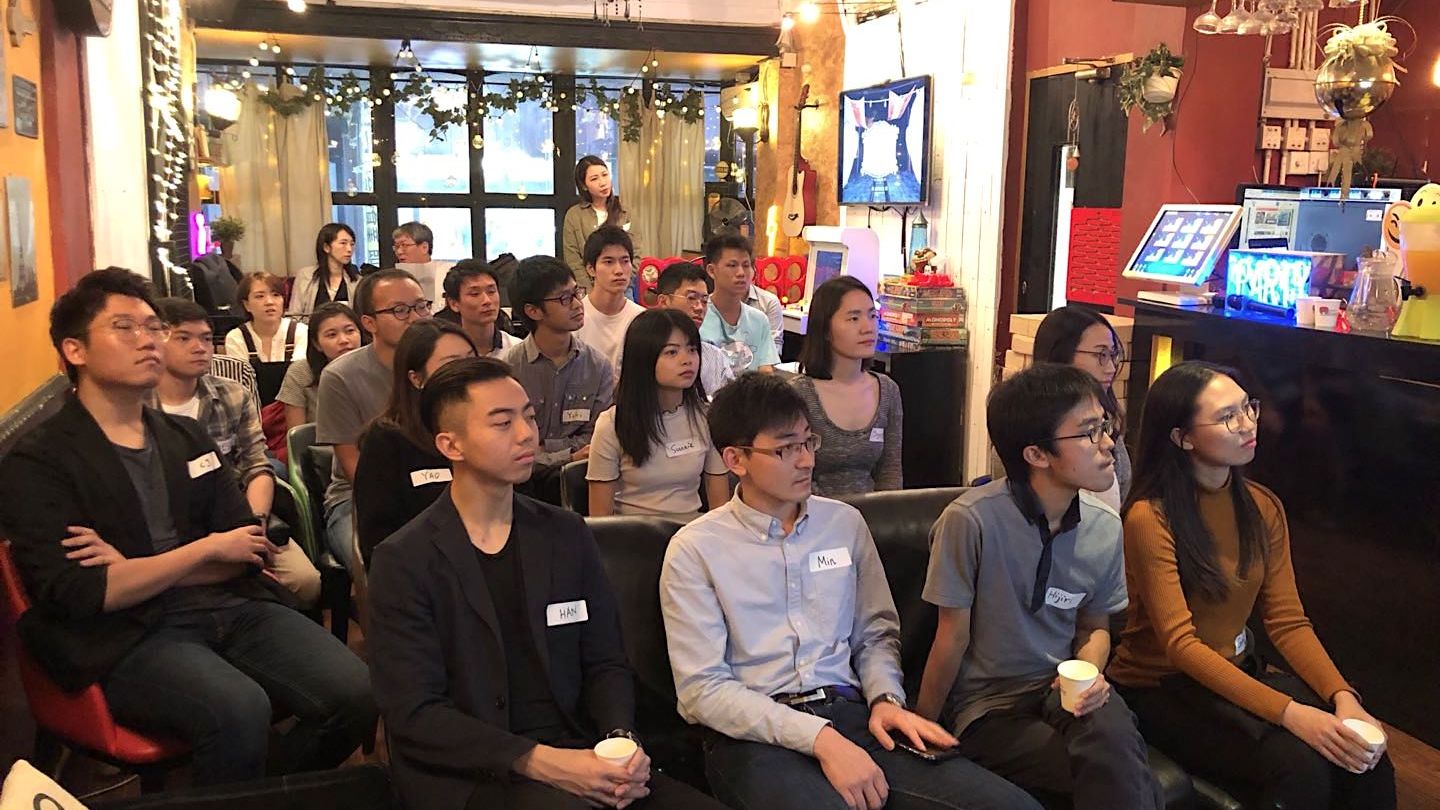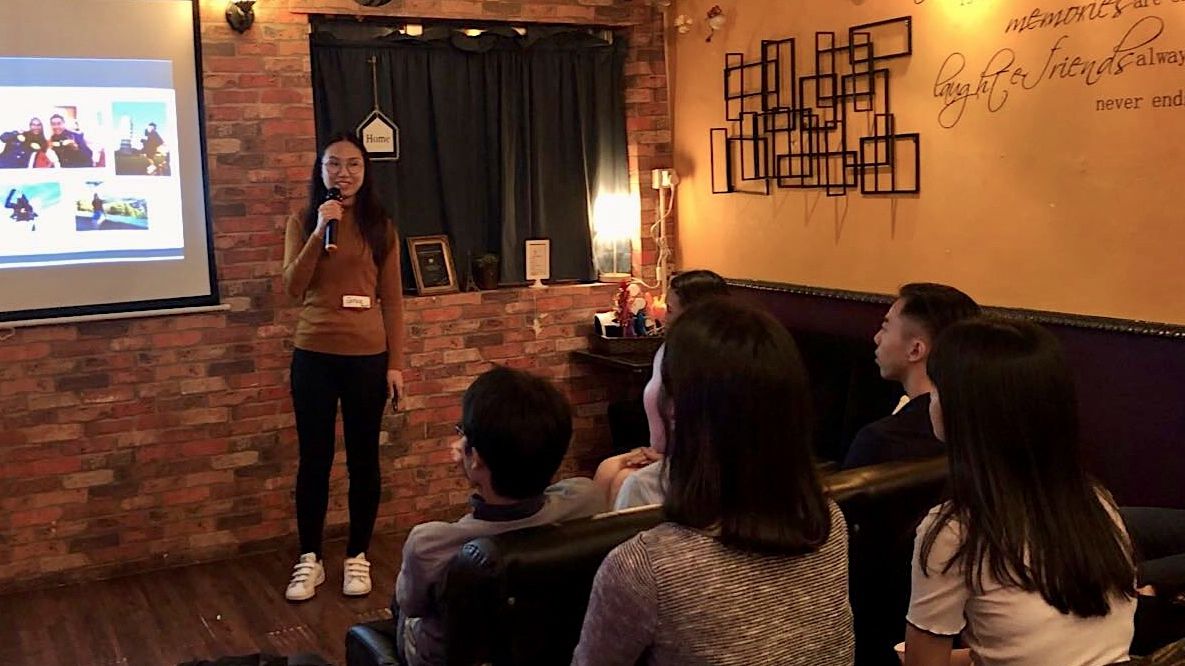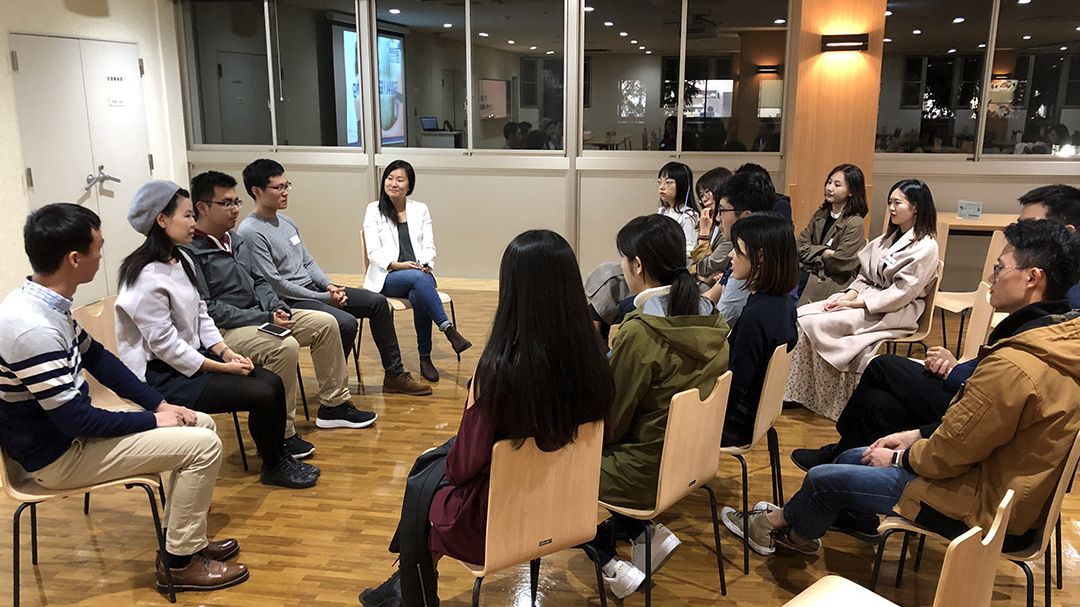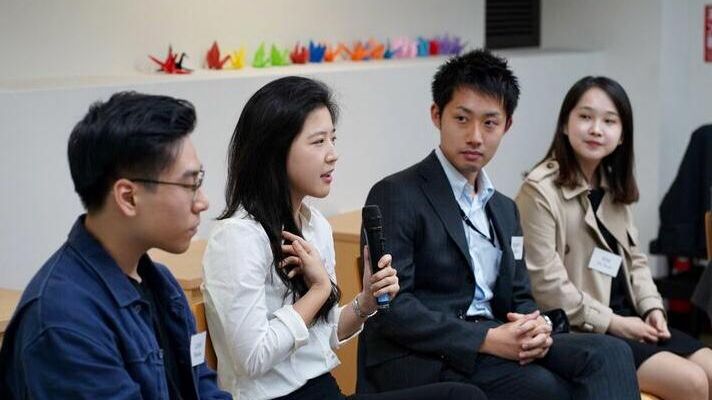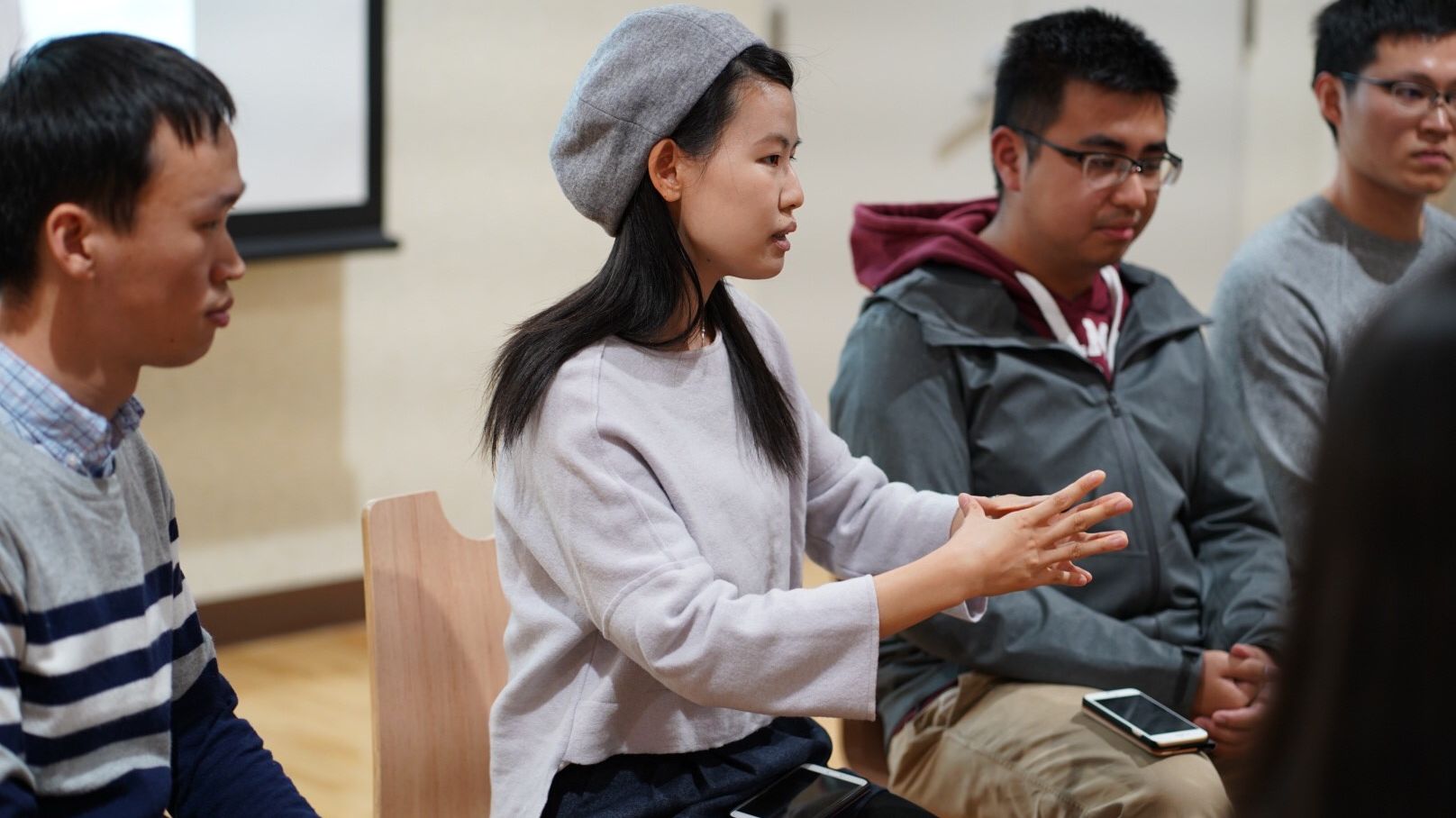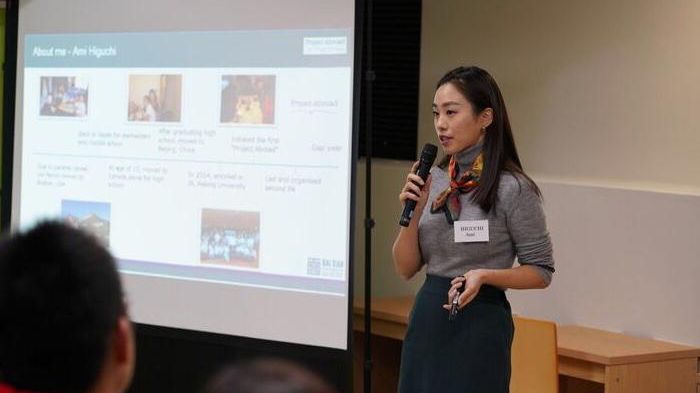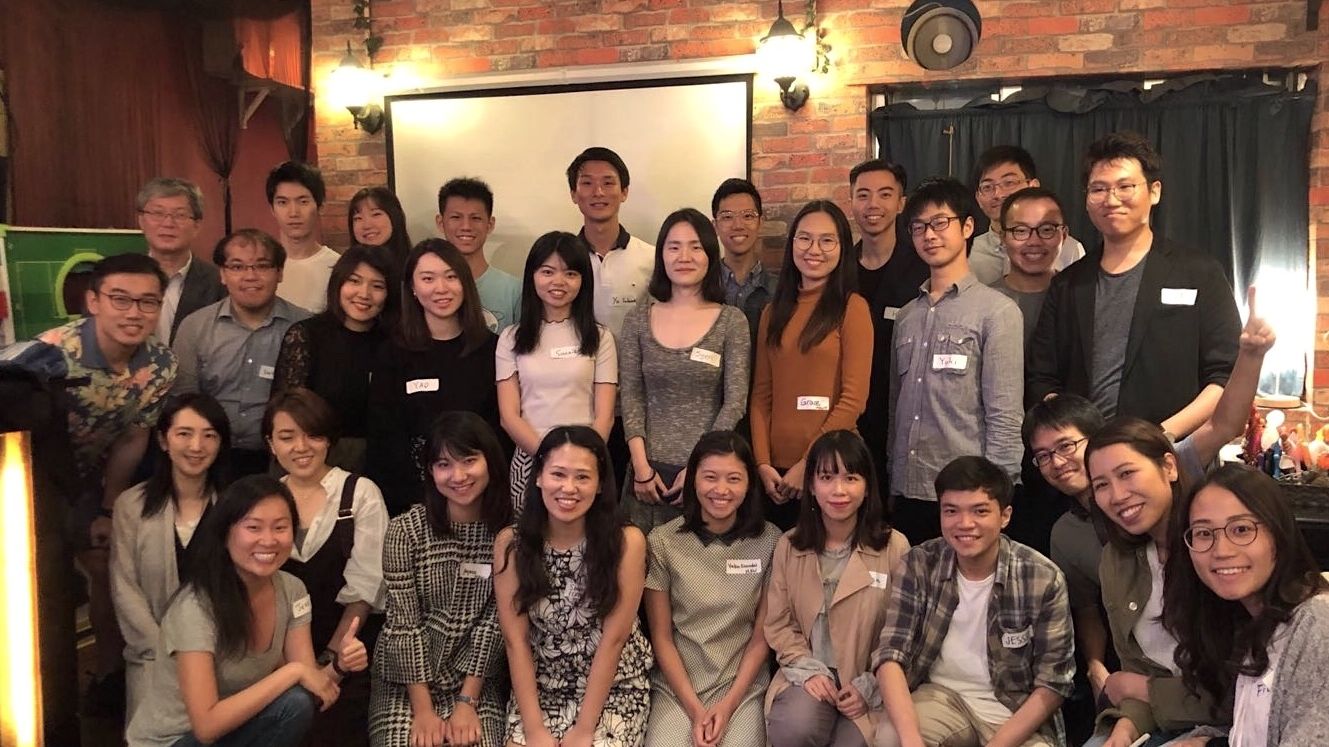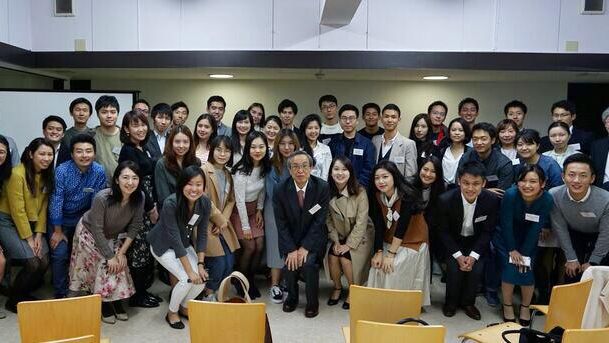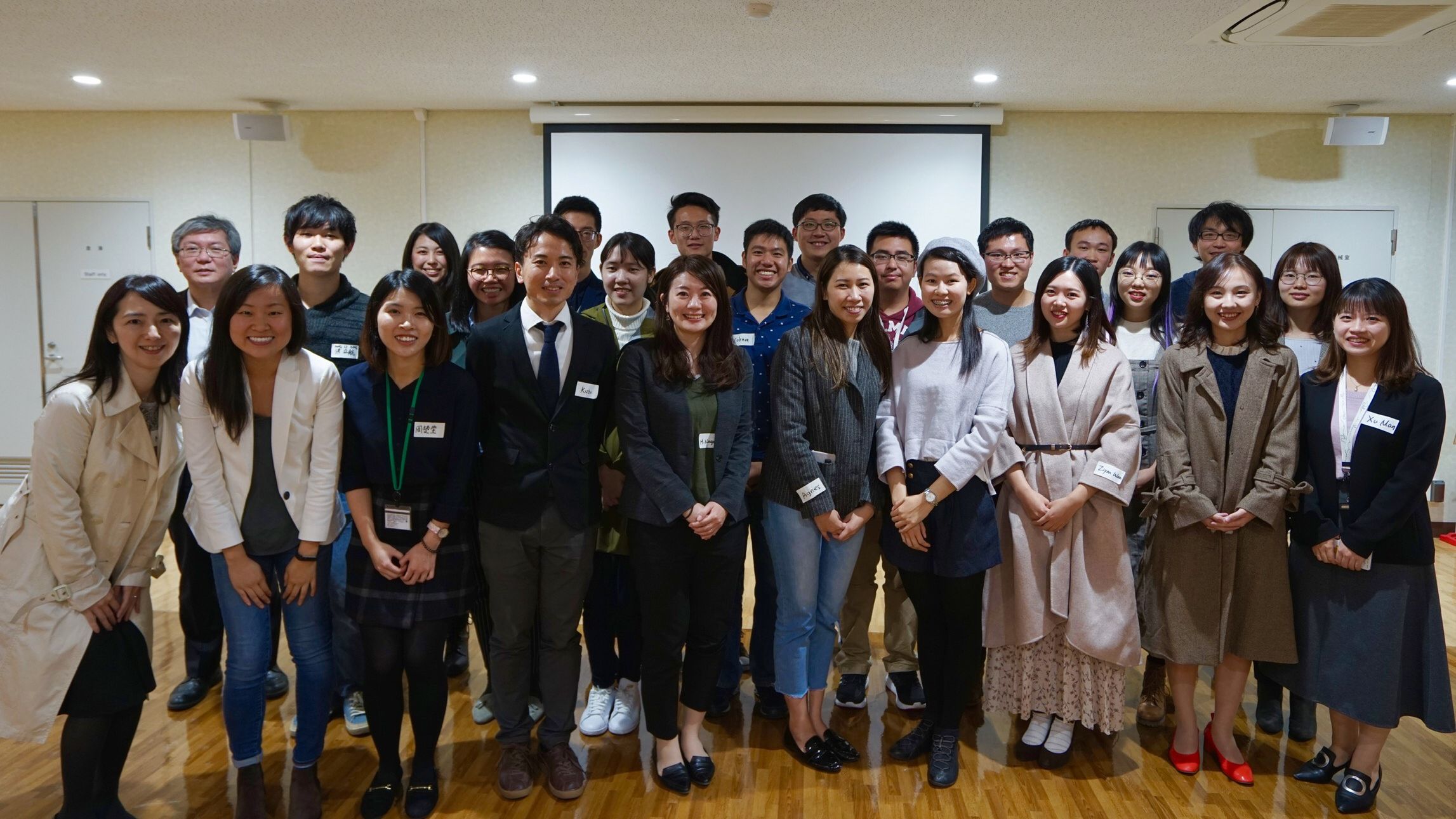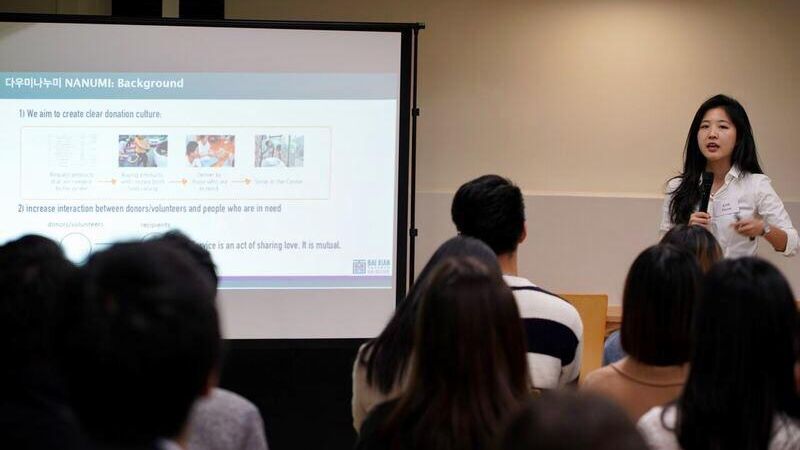Prof. LU Yang
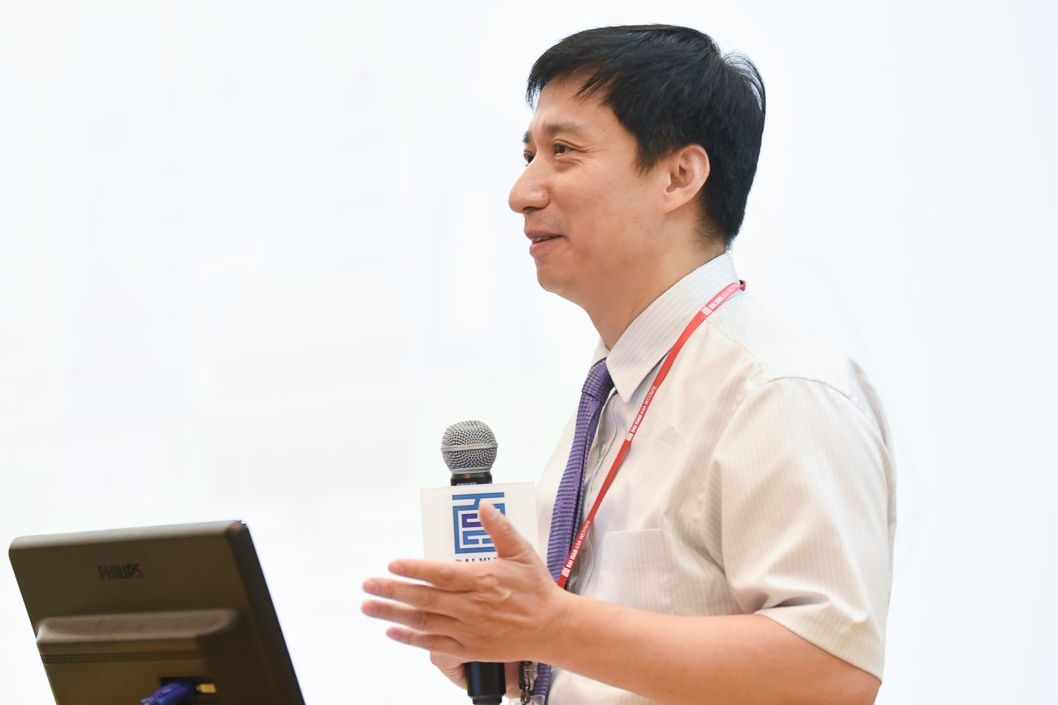
Lu Yang is a history professor at Peking University and the Director of Graduate Studies at Yenching Academy of Peking University. At the BXAI Summer Program 2018, Professor Lu led the “Heritage Preservation” topic learning stream, where he engaged students in exploring the relationships between urban planning, heritage sites, and local communities.
For Professor Lu, the study of history is an exciting journey of learning about our past and finding connections between the past and present – a journey that he believes adds value to the cultural traditions of the world. His career as a historian has led him to realize how his personal experiences influence his work. “Sometimes your experiences enrich your knowledge and make it easier for you to connect to certain periods or people of the past, but on the other hand, your experiences can also limit you in your understanding of historical contexts that may seem foreign to you,” he explains. “My goal is to constantly maintain a balance of using my own experience to understand the past and allowing the past to teach me where my experience is limited.”
Professor Lu encourages students to stay inquisitive and to continuously reflect on their positions, even if they feel confident about what they know on a particular subject. To further their learning and strengthen their critical thinking, he encourages students to engage and even challenge professors through productive conversations that explore the relationship between assumption and research.
Dodo CHENG
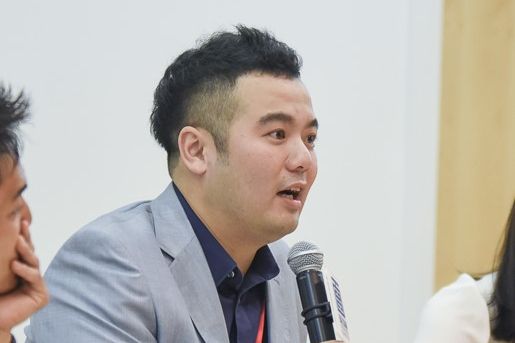
Dodo Cheng is the founder of Sharing Kitchen HK, a social enterprise and food production platform that seeks to empower grassroots women by connecting them with local restaurants. By gaining access to restaurant kitchens during non-peak hours, Sharing Kitchen enables women with a passion for cooking to realize their dream, earn a living, and contribute to society. So far, six restaurants have pledged their support to the project by sharing their kitchens with underprivileged chefs.
With a background in social work, Cheng’s early community service experiences in low-income areas of Hong Kong allowed him to engage with the grassroots, who expressed their desire to take charge of the various issues affecting their own communities. As he worked to craft solutions to these issues, he decided to involve the business sector as a way to make a bigger impact. “I realized that tackling social issues is not only the responsibility of the government, but should also concern the business sector, civil society, and community members,” says Cheng. “When people join hands, things will change dramatically.”
Exploring the idea of using a sharing economy concept as a way to uplift grassroots communities, Cheng realized that he could mutually benefit underserved individuals and businesses by creating a “sharing kitchen”, which would provide flexible job opportunities to talented home cooks while taking advantage of underused restaurant space during off-peak hours. Two years on, Cheng has not only witnessed the success of the venture, but more importantly, the impact it has had on the individuals themselves. “Empowerment is key as it allows people to really take charge of their own lives by doing something they love, which encourages self-sustainability,” says Cheng.
As a panelist at the “Dialogue with Social Entrepreneurs” session at the BXAI Summer Program 2018, Cheng shared about the importance of empowerment in social entrepreneurship and how the business and social sectors can work together to make a positive impact. Cheng encourages students interested in the field to pursue their passion for social change, saying, “While social entrepreneurship is often about what you can do for the community, there is also a lot to be gained along the way. You will learn, grow, and be transformed.”
Prof. Yosuke HIRAYAMA
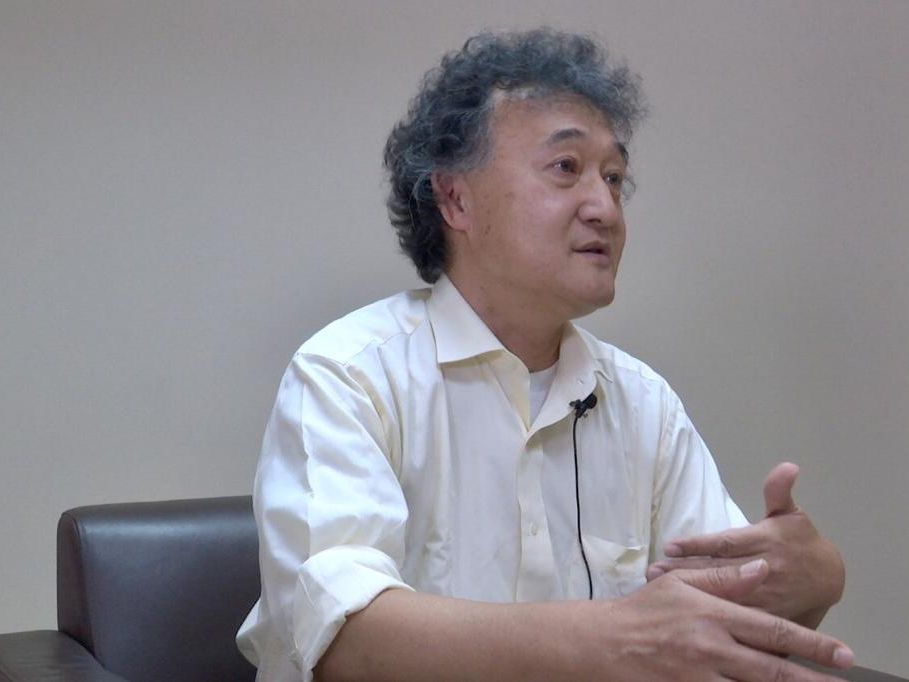
Yosuke Hirayama is a professor of housing and urban studies at the Graduate School of Human Development and Environment at Kobe University, specializing in housing and urban change, home ownership, social inequality, and comparative housing policy. Professor Hirayama spoke at the 2018 BXAI Summer Program’s “Urban-Rural Integration” topic learning stream, where he examined the challenges brought by urban-rural integration today in China and other East Asian countries.
Reflecting back on the journey of his career, Professor Hirayama recalls his early passion for studying architecture in university. However, having been brought up in a modest neighborhood in Osaka, where he lived in a small home and encountered various issues in terms of infrastructure and urban planning, Professor Hirayama decided to shift his focus from architecture to housing and urban studies as he wanted to tackle housing issues that affect the masses. “Students in the department of architecture usually want to become ‘cool architects’. They want to build museums or cultural centers,” he says. “But I was more interested in dealing with housing issues and ‘architecture for ordinary people’, and this is why I decided to pursue housing and urban studies instead.”
While Professor Hirayama has remained in the housing and urban studies field for the past three decades, he highlights one defining moment in his career, which led him into a 10-year stint in post-disaster reconstruction. This was the devastating Kobe earthquake, which occurred in 1995 and left widespread death and destruction. As an alumnus of and researcher at Kobe University, Professor Hirayama felt compelled to participate in recovery and reconstruction efforts, despite not having much background knowledge in the area. This experience reshaped his perspective on his life and career and today, he advises young people to remain open to what the future may hold for their careers. “It is important for students to pursue their passions, but they should understand that they may encounter unexpected circumstances along the way. And while things may not happen according to their initial plan, they should not be discouraged or fearful but take it as an opportunity to explore something new.”
BXAIJ 2019 New Year's Party in Tokyo
Bai Xian Asia Institute (Japan) Inc. (BXAIJ) welcomed 2019 with a bang at their annual New Year’s party in Tokyo last Tuesday. Over 70 guests attended including Bai Xian friends, alumni, scholars, and representatives from our six Japanese Anchor and Participating Universities, and we were very honored to have Mr. Yoshihiro Watanabe, President of BXAIJ; Mr. Keiichi Iwamoto, Director of the Ministry of Foreign Affairs of Japan; Mr. Zhang Yaqiang, Councilor of the Chinese Embassy in Japan, and our CEO, Ms. Ronna Chao, deliver encouraging words about the value of lifelong learning and the importance of building a community rooted in understanding, respect, and collaboration.
Thank you to everyone who attended, and a special thank you goes to BXAIJ for making this event possible. We wish you all a fruitful and successful new year!
Prof. ZHU Sheng-jun
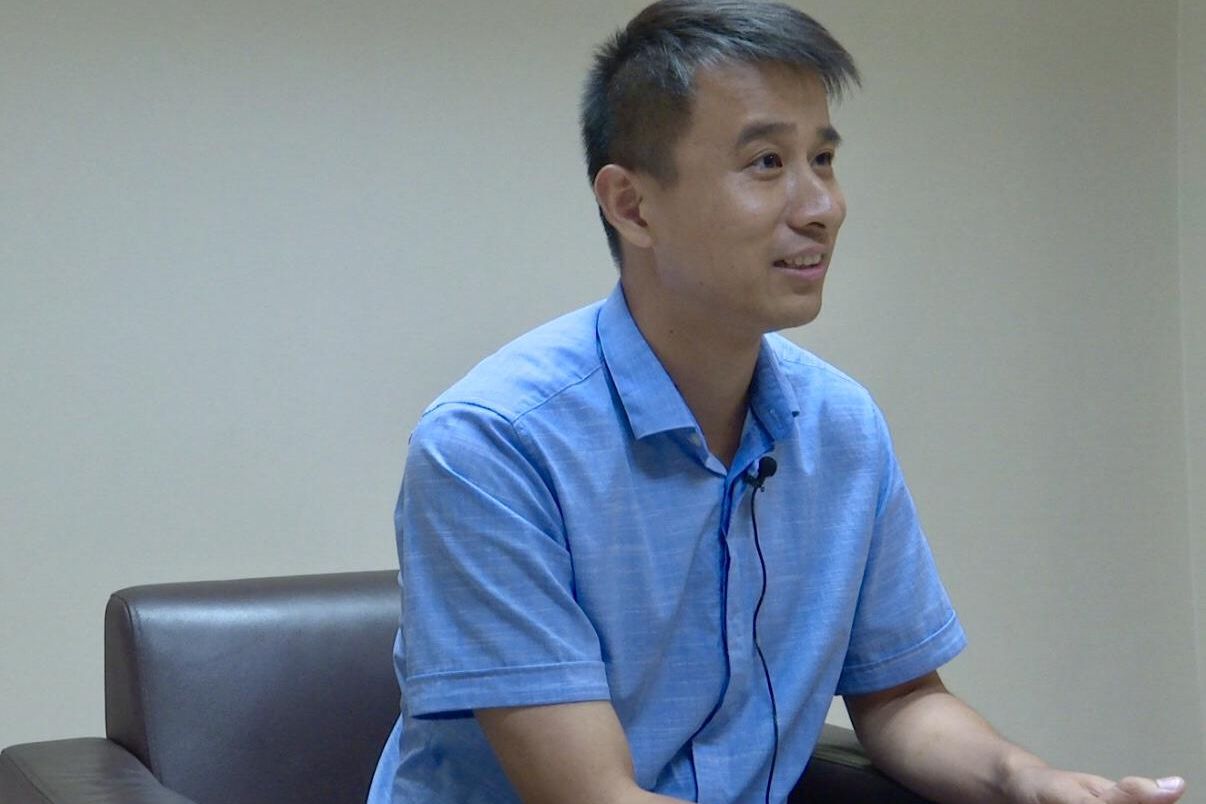
Shengjun Zhu is Assistant Professor at Peking University’s College of Urban and Environmental Sciences, where he specializes in globalization and regional development. At the BXAI Summer Program 2018, Zhu spoke at the “Urban-Rural Integration” topic learning stream, where he encouraged students to consider issues and opportunities resulting from East Asia’s rapid urbanization.
With a PhD, a master’s, and a bachelor’s degree in geography, as well as a bachelor’s degree in economics, Zhu’s interdisciplinary background has allowed him to investigate social and economic issues from a unique point of view that incorporates multiple perspectives. He stresses his belief in the importance of all social sciences, saying, “When we consider development, we should pay attention to the social, historical, economic, and geographical aspects. As an example, if we give too much weight to just one aspect, such as economic development, we end up adopting a one-sided view that limits our understanding and invites a host of negative effects, such as environmental pollution and child labor.”
He advises students interested in pursuing research in social sciences: “To better understand the world, we should be open-minded and embrace diversity, differences, dynamics, and contingency.”
Jessica LAM
Jessica Lam is the co-founder of Kaiterra, a Beijing-based social enterprise that monitors and maps the world’s air quality in an effort to better understand and reduce air pollution. She reflects back on how a book that she read during her teenage years changed her perspective and outlook on life, and a change in behavior opened doors of opportunity for her.
Practical Lessons: How to Navigate Your Career
On December 8, we held a seminar moderated by BX Alumnus Joushua Cho at the Yenching Academy of Peking University on career choices, development, challenges and strategies as BXAI’s first Alumni Association kick-off event. Ms. Ronna Chao, CEO of BXAI; Ms. Laya Liu, Senior Marketing Manager at Microsoft; and Ms. Linh Nguyen, BX Alumna and consultant at New Oriental Technology and Education Group, each shared valuable lessons and insights about their career paths and real-life struggles, and offered advice on job interviews, career development, as well as overcoming obstacles.
Reflecting on how she left a career in finance to follow her passion for fashion and apparel, Ronna encouraged the young people in the audience to pursue their dreams. “At that stage in your life, you actually have the luxury of ‘not having a lot of responsibilities’. That’s the time when you should take risks and follow your heart,” she said. She went on to share openly about her job interview experiences and advised students to see every job interview as a training opportunity and not be afraid to fail. “A fear of failure can become an obstacle in your path,” she said. “Have a contingency plan in place and give yourself a margin of error, understanding that even in failure, you actually learn a lot about yourself in the process. Failure builds resilience – a very important skill that I often look for in the people that I hire.”
Asked by a student as to how her academic background in international relations influenced her career path, Ronna responded, “My degree wasn’t directly relevant to my career, but the interdisciplinary learning, the broad spectrum of subjects and topics that you are exposed to, I think that trains your brain to be able to see things from different perspectives. And ultimately, that’s much more important in your life than being trained in very specific skills.” She went further on the subject and urged students to look for ways to enrich their study experience so as to equip themselves for their future career. “It shows that while you were pursuing your degree, you were not limited to the world of academia, but were also proactive in gaining real-life experiences and applying what you learned to situations in the real world.”
For Laya, her background in journalism taught her the importance of asking questions and instilled in her a host of practical life skills. She later decided to shift from a career in journalism to one in the technology industry, even though she had no experience in the field. The switch forced her to learn everything from scratch and to adapt to the fast-changing nature of the technology industry. “No matter how old you are, or what kind of background you have, you must always be prepared to learn new things and adapt to change,” she advised.
Linh shared openly about the challenges she faced as a foreign worker in Beijing and recalled her struggle to find the “ideal job” when she was a student at the Yenching Academy. Looking back, she appreciates the networking events and career seminars she attended, which allowed her to interact with professionals and connect with various companies. The opportunity to work abroad in different countries also enabled her to learn from and adapt to different workplace cultures. “I’ve learned to be more patient,” said Linh. “Even if your current position is not ideal, it pays to stay a year or two to learn more,” she said.
Responding to Linh’s sharing, Ronna added, “No matter what job it is, no matter what situation you are in, there will always be something you can learn. There will always be challenges that will provide good training. And then you have to be patient.” She also advised students to take advantage and be proud of their skills. “All of you should think about what company would find your skills valuable,” she said. “Do not ever look down on or doubt what you’re studying or what your skills are because there’s always someone who will find those skills valuable.” Laya encouraged students to explore each job thoroughly, saying, “If you look at a job, don’t just look at one side of it. Look at it from different angles. You may discover the beauty of the job from a certain angle and realize valuable aspects that you may not have considered before.”
The interactive session concluded with a wealth of positive feedback from our scholars and alumni. Joushua Cho, BX Alumnus studying at Tsinghua University and moderator at this seminar, was impressed by the practicality of the seminar and was especially inspired by Ronna’s advice to “find a place that values your skills”, which encouraged him to adopt a more flexible, step-by-step approach to his job search. For Hideo Natsume, another BX Alumnus from Tsinghua University, one of his biggest takeaways was the importance of being proactive while staying patient. “I like the idea of seeing interviews as training opportunities,” he said. “I also need to learn to be patient so that I can learn more from each place instead of jumping around all the time.”
We would like to extend a big thank you to our speakers for taking time out of their busy schedules to share openly about their experiences and insights with us. We hope all our participants learned something new and enjoyed the opportunity to connect and interact with fellow members of the BX community. Until next time!
Building and Nurturing the Bai Xian Community
Over the past few weeks, we have thoroughly enjoyed reconnecting with over a hundred AFLSP Scholars, BX Alumni, as well as university professors and staff at our BXAI gatherings in Hong Kong, Kyoto, and Tokyo.
It was great to hear from both current students and alumni, who shared their personal growth stories and spoke openly about the challenges they faced during their time abroad. We also learned about how their cultural immersions broadened their horizons and opened their eyes to the world around them.
Hiroki Mizumura, a Japanese BX Alumnus who has studied in Taiwan, Beijing, Tokyo, and the UK, spoke about an encounter he had while travelling in China, when a Chinese man sitting next to him on a train confronted him about his views on the Nanjing Massacre. Hiroki recalled this person’s initial bitterness and anger toward him, which was later tempered following a lengthy conversation. “I wasn’t studying in China because I wanted to quarrel with people, but because I was genuinely interested in learning about Chinese culture and engaging with Chinese people,” said Hiroki. “Once I told him that and shared my personal story with him, he became much happier.” The two eventually managed to find common ground, respectfully exchange opinions, and even begin a friendship, demonstrating the importance of mutual understanding in our mission to create a harmonious society. “Though it was difficult at the time, I now see our exchange as a precious experience of building bridges across cultures.”
We were also very encouraged by scholars who shared about the many challenges they faced and how they grew from those experiences. Taiwanese scholar, Huang Yin Hsuan, spoke about how her multiple failed attempts to enter medical school ultimately helped her develop persistence. BX Alumna, Kim Daum, who is Korean but was raised in China and currently works in Tokyo, highlighted the difficulties she encountered with finding her identity having lived in different countries, as well as her struggles with bullying, depression, and an eating disorder. She eventually overcame these obstacles and decided to transform her painful experiences into something good. “I realized that I wasn’t the only one struggling with loneliness, and that it is something everyone experiences to some degree,” said Daum. “And if this is true, why aren’t we sharing more of ourselves with one another? That’s part of what led me to explore how I could help connect people across cultures and language barriers.” Inspired by the BXAI Summer Program, Daum has initiated two social impact projects: Nanumi was founded in 2012 and is a charity organization that has recently expanded to engage volunteers from 14 countries across the globe; while Ethnic Neighborhoods aims to utilize technology to connect immigrant communities around the world.
Chinese scholar Pan Wei Kang shared about his community service project at the Kyoto Self-Help Devices Office, where he designs self-help devices such as sock aids and one-hand chopping boards for disabled and elderly people. Reflecting on his experience, Wei Kang said, “What I learned from my time as a volunteer is that all this academic knowledge that we gain from university can actually be applied to help people in need. I feel very fortunate to have the opportunity to work alongside volunteers of different ages and nationalities as we seek to contribute to the local community together.”
At our Tokyo gathering, BX Alumna Ami Higuchi recounted her multicultural upbringing and how that led her to initiate “Project Abroad”, a conference for Chinese students to engage in in-depth discussions with leading Japanese entrepreneurs, practitioners, and students. She also encouraged current scholars to take advantage of the BXAI platform to make a positive impact. “I have experienced the value of being a part of the BX community – it truly opens up many opportunities for us,” she said.
Thank you to everyone who attended our gatherings and to those who helped make these events possible. Hearing from many of you who shared so honestly and openly, we were very encouraged to see how the BX community has grown to become a safe yet diverse space that promotes human connections and intercultural learning opportunities. We firmly believe that these gatherings are an important component of our mission to build bridges across cultures in Asia and beyond, and look forward to seeing more of you at our future events!
